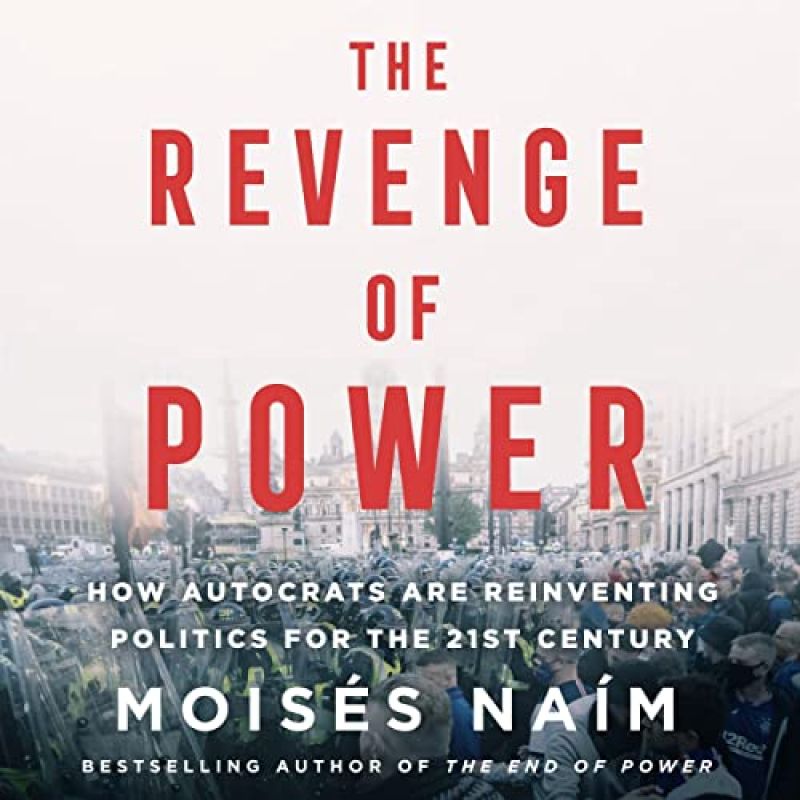The Revenge of Power: how autocrats are reinventing politics for the 21st century by Moisés Naím
My Rating

This is a book that my wife Leigh recommended to me having heard it spoken about on the Rest is Politics with Alistair Campbell and Rory Stewart. I have found it absolutely fascinating as well as deeply disturbing about the way that power is being taken over by a few strong men to serve themselves and their cronies in almost gangster/mafia style takeovers of the countries that were once thought to be highly democratic. If you wish to keep abreast of political, economic and well events this is a fascinating book to read, or listen to.
Moisés Naím’s The Revenge of Power is an urgent, thrilling, and original look at the future of democracy. It illuminates one of the most important battles of our time: the future of freedom and how to contain and defeat the autocrats mushrooming around the world.
In his New York Times best-selling book The End of Power, Moisés Naím examined power-diluting forces. In The Revenge of Power, Naím turns to the trends, conditions, and behaviors that are contributing to the concentration of power, and to the clash between those forces that weaken power and those that strengthen it. He concentrates on the three “P”s – populism, polarization, and post-truths. All of which are as old as time, but are combined by today’s autocrats to undermine democratic life in new and frightening ways. Power has not changed. But the way people go about gaining it and using it has been transformed.
The Revenge of Power connects the dots between global events and political tactics that, when taken together, show a profound and often stealthy transformation in power and politics worldwide. Using the best available data and insights taken from recent research in the social sciences, Naím reveals how, on close examination, the same set of strategies to consolidate power pop up again and again in places with vastly different political, economic, and social circumstances, and offers insights about what can be done to ensure that freedom and democracy prevail.
The outcomes of these battles for power will determine if our future will be more autocratic or more democratic. These outcomes will, in turn, depend on the capacity of our democracies to survive the attacks and dirty tricks of autocratic leaders bent on weakening the checks and balances that limit their power. Naím addresses the questions at the heart of the matter: What are, in practice, those attacks and tricks? Why is power concentrating in some places while in others it is fragmenting and degrading? And the big question: What is the future of freedom?